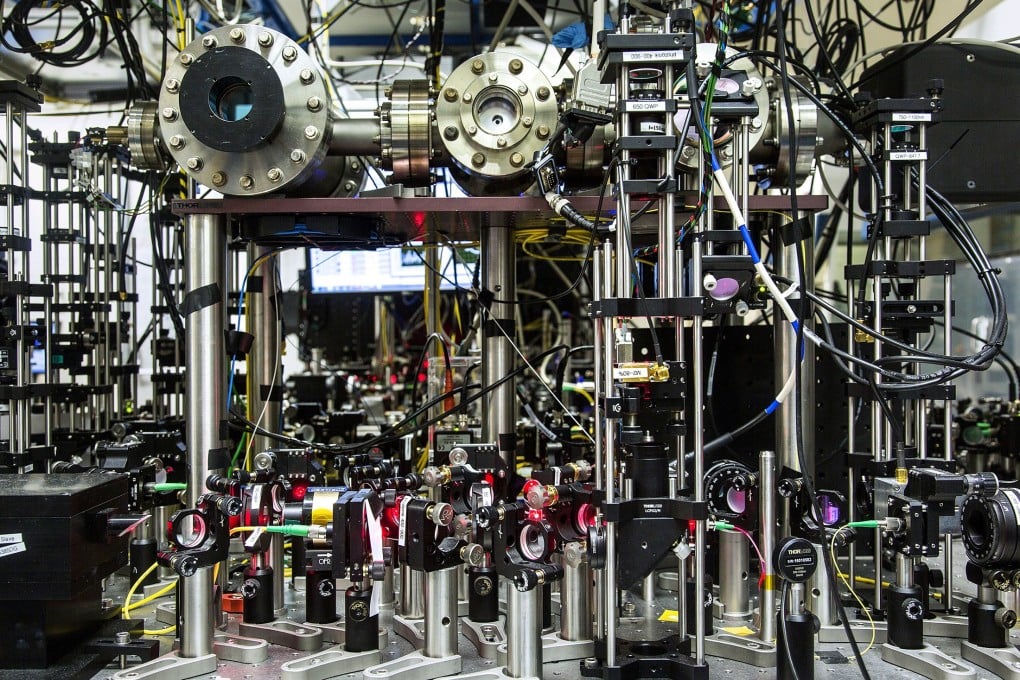The race against time to build the world’s most precise clock
- From the scientific community to the military and the financial industry, everyone is watching keenly as atomic clocks become more accurate

The most important part of one of the most precise clocks in the world is a paper-thin, staple-size piece of lutetium. It rests inside a soundproof, vibration-proof, mini-fridge-size box, which sits atop a US$22,000 motion-dampening table. Murray Barrett, associate professor of physics at the National University of Singapore, reaches for the case to show me.
“It should be OK,” he says in his warm New Zealand accent. But then he hesitates. We are in a darkened laboratory filled with lasers whose beams bank, split and intensify through arrays of crystals and electronics. “Normally it’s OK,” he says, backing away from his still-very-much-a-work-in-progress clock. “But I’m not sure if we’re running anything or not.”
Barrett’s clock, located at the university’s Centre for Quantum Technologies, is intended to slice time into more and smaller segments than any clock before it. An analogue stopwatch can typically divide a second into 10 pieces: 0.1 second, 0.2 second, etc. The lutetium clock will, in theory, add 14 zeros to the right of that decimal point, thereby segmenting the second into (roughly) a quadrillion pieces, and remain accurate to within a second if left running for 30 billion years. Even the smallest vibrations from, say, the exhaust fans that keep the laboratory environment clean are enough to upset that precision – and with it, all the lab’s work.
So far, the potential applications for a clock with 15 decimal places of precision are theoretical and aspirational. But that’s not stopping labs around the world from competing, using different elements, to reach the same goal.

Lutetium is in some ways the least likely element to feature in a winning effort. Not only is it relatively rare in nature; because of its high cost and similarity to other elements, its known applications are also rare. Thus researchers and industry tend to pass it over. If Barrett and his lab succeed, the global market for lutetium won’t expand significantly – after all, the clock uses hardly any. Nevertheless, lutetium will quickly become the beating heart of science and the global economy.
All clocks measure time by following a recurrent event. That can mean tracking the rotation of the Earth via the shadows on a sundial, or it can mean counting the swings of a pendulum. None of these timekeeping methods can produce a measurement that is constant in all times and places, though. Temperature and humidity alter mechanical clock parts, lengthening or shortening seconds. Timekeeping based on astronomical observation is hampered by the irregularity of the Earth’s orbit around the sun.